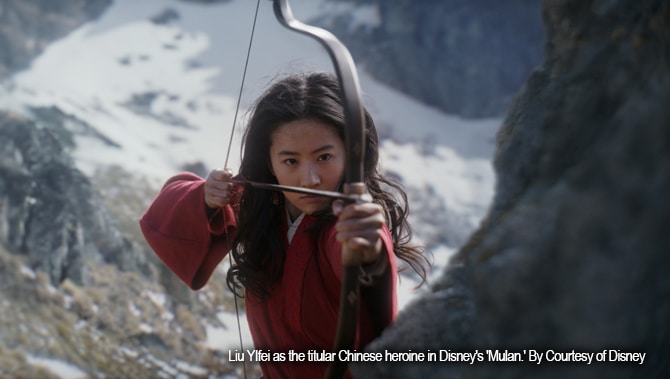It was never going to live up to the animated version.
How could it? Disney’s original 1998 film grossed over $300 million at the box office, earned countless accolades, and became a cultural staple for an entire generation. Sequels and adaptations are seldom as good as their originals, and “Mulan” is no exception. It joins the ranks of “Aladdin,” “The Lion King,” and “Dumbo” (Remember “Dumbo”? Because I don’t.) as yet another Disney adaptation that trades the charm of its animated predecessor for, well, nothing.
China’s under attack. The emperor (Jet Li) orders one man from every family to fight, and Hua Mulan (Liu Yifei) enlists as a man so her disabled veteran father (Tzi Ma) doesn’t have to. There’s a bunch of punching and kicking, some buckets of water make it up a hill, an imaginary phoenix shows up, and — poof! Mulan has saved the Imperial Army, the Emperor, and all of China, thus restoring honor to her father, her family, and, presumably, her cow.
It’s not a frame by frame adaptation of the animated film, by any means. Gone are Mushu, Li Shang, and the Huns. Instead, Mulan faces off against the Rouran invaders, who are led by Böri Khan (Jason Scott Lee) and aided by a spiteful witch named Xianniang (Gong Li). And there are no more musical numbers either; the only remnants of classics like “Reflection” and “A Girl Worth Fighting For” are the subtle cues in the score and occasional snippets of lyrics-turned-dialogue.
That being said, there are still plenty of callbacks: the matchmaker fiasco, the training camp montage, and even the part where Mulan gets unwelcome visitors during a midnight lake bath. But as much as I love seeing Liu Yifei royally bungle a tea pouring or Donnie Yen showing off his incredible martial arts skills, it still feels like something’s missing. The scenes feel empty, like pale imitations of the original.
And the film, in general, also feels empty. The camera lingers on scenes to milk the emotional impact that’s not there, to begin with. Characters undergo inexplicable and unearned personal transformations. The plot marches forward with little rhyme or reason, and the writing feels bland, as though the screenwriters were just playing connect-the-dots with the outline of the animated original. The visuals are beautiful, yes; the sweeping shots of the Chinese countryside and lavishly decorated Imperial City are appropriately grandiose for a film with access to Disney’s pocketbooks — but all the production value in the world can’t save a movie without a soul.
Click HERE to read the full article which was first published in the Harvard Crimson.
Excerpts of this article are published with permission from Kalos K. Chu, a Harvard Junior and a writer at the Harvard Crimson.)


